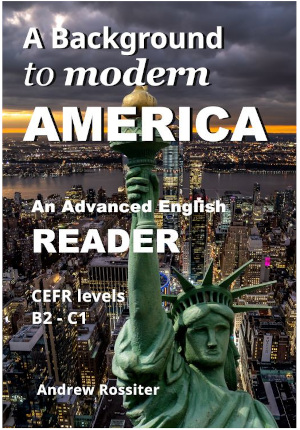

If & unless - le conditionnel en anglais
Les phrases et propositions conditionnelles
- Pages d'accueil
- Vie et voyage
- Tourisme
- Pages étudiants
- Civilisation
Grammaire
anglaise
Note importante: structures
La
proposition conditionnelle peut précéder
ou
suivre la proposition
principale d'une phrase.
Cette page traite aussi deux autres points:
- 1.4. Note sur unless.
- 2. Omission de la particule conditionnelle.
1.1. La phrase conditionnelle ouverte.
a) Une phrase conditionnelle ouverte exprime une action future dont la réalisation dépend d'une autre action futureLe verbe de la proposition principale est au temps futur avec will (ou éventuellement avec un verbe modal), le verbe de la proposition conditionnelle est au temps présent simple.
 Evitez
l'erreur... le verbe de la proposition
conditionnelle (après
if)
n'est jamais
au temps futur.
Evitez
l'erreur... le verbe de la proposition
conditionnelle (après
if)
n'est jamais
au temps futur. Exemples:
If you do too much, you'll get tired.
You'll get tired if you do too much.
If everyone works fast, we'll finish in time.
We won't finish in time unless everyone works fast.
If I go to Scotland, I can look for the Loch Ness Monster.
If you visit California, you could visit Hollywood.
Unless the directors can increase sales, we'll have to close this factory.
If you do too much, you'll get tired.
You'll get tired if you do too much.
If everyone works fast, we'll finish in time.
We won't finish in time unless everyone works fast.
If I go to Scotland, I can look for the Loch Ness Monster.
If you visit California, you could visit Hollywood.
Unless the directors can increase sales, we'll have to close this factory.
Comprendre
la grammaire
VF de la grammaire anglaise aux multiples recommandations - accessible à tous.

Edition e-book 3,99 €,
édition brochée 18,50 €
b) Parfois,
la phrase conditionnelle ouverte peut être
utilisée pour exprimer une
relation constante entre deux éventualités. Dans
ce cas, les verbes des
deux
propositions sont au temps
présent simple.VF de la grammaire anglaise aux multiples recommandations - accessible à tous.

Edition e-book 3,99 €,
édition brochée 18,50 €
Au passé: La phrase conditionnelle peut aussi se référer à des situations conditionnelles au passé. Dans ce cas, le verbe de la proposition principale est au temps préterite simple, (ou rarement avec un verbe modal), le verbe de la proposition conditionnelle est au temps préterite simple ou progressif.
Dans une phrase conditionnelle ouverte, if est parfois remplacé par when; mais le sens n'est pas tout à fait le même. L'emploi d'if implique que la condition est réellement ouverte, et peut ne pas être remplie. L'emploi de when implique que l'événement aura vraisemblablement lieu.
1.2. La phrase
conditionnelle hypothétique ouverte.
Une
phrase conditionnelle hypothétique ouverte est
utilisée
pour
décrire une situation ou événement
futur possible, dont la réalisation
dépend d'une autre situation ou
événement futur possible, mais incertain. Dans ce cas, le verbe de la proposition principale est au temps présent conditionnel (would + infinitive, ou could +infinitive); le verbe de la proposition conditionnelle est habituellement au présent subjonctif dont la forme est presque toujours identique à celle du prétérite simple.
De temps en temps, l'aspect conditionnel peut être souligné en utilisant l'auxiliaire were + to + un verbe à l'infinitif.
Exemples:
1A If you ate too much, you'd (you would) get fat.
1B You'd get fat if you ate too much.
2A If everyone worked faster, we would / could finish in time.
2B We'd finish in time if everyone worked faster.
2C If everyone were to work faster, we would/could finish in time.
3 If I went to London, I would / could visit the British Museum.
4. If you saved some money, you could go on holiday more often.
5. If sales increased, we could open a second shop.
1A If you ate too much, you'd (you would) get fat.
1B You'd get fat if you ate too much.
2A If everyone worked faster, we would / could finish in time.
2B We'd finish in time if everyone worked faster.
2C If everyone were to work faster, we would/could finish in time.
3 If I went to London, I would / could visit the British Museum.
4. If you saved some money, you could go on holiday more often.
5. If sales increased, we could open a second shop.
 Notez aussi
cette expression courante (qui utilise une forme
conditionnelle hypothétique ouverte, bien que la situation
soit
manifestement impossible !)
Notez aussi
cette expression courante (qui utilise une forme
conditionnelle hypothétique ouverte, bien que la situation
soit
manifestement impossible !)
6. If I
were you, I'd ..........
Comme dans:
If I were you, I'd go a bit slower / If I were you, I'd put that gun down !!
Comme dans:
If I were you, I'd go a bit slower / If I were you, I'd put that gun down !!
La structure conditionnelle hypothétique s'emploie couramment dans le discours indirect:
Exemples:
My
professor told me I'd do much better if I worked harder.
The magistrate informed him that he'd go to prison unless he stopped stealing.
The newspaper reported that unless the directors could increase sales, they'd have to close the shop.
The magistrate informed him that he'd go to prison unless he stopped stealing.
The newspaper reported that unless the directors could increase sales, they'd have to close the shop.
1.3. La proposition conditionnelle hypothétique non-réalisée.
Celle-ci est utilisée pour exprimer une situation ou un événement qui aurait pu se produire, mais qui ne s'est pas produit à cause d'une condition non remplie.Le verbe de la proposition principale utilise le temps passé conditionnel (would have + participe passé).
Le verbe de la proposition conditionnelle utilise le temps passé antérieur, past perfect (had + participe passé). (Voir: les temps en anglais)
Exemples :
If you had eaten too much, you'd (you would) have got fat.
You'd have got fat if you'd eaten too much.
If everyone had worked fast, we'd have finishd in time (but we didn't).
We wouldn't have finished in time unless everyone had worked fast (but we did).
If I'd understood Chinese, it would have been much easier (but I didn't)
If you had visited Scotland, you could have seen Edinburgh Castle (but you didn't).
Unless we'd been very sure of winning, we wouldn't have even tried.
(But we were sure, we did try, and we won).
If you had eaten too much, you'd (you would) have got fat.
You'd have got fat if you'd eaten too much.
If everyone had worked fast, we'd have finishd in time (but we didn't).
We wouldn't have finished in time unless everyone had worked fast (but we did).
If I'd understood Chinese, it would have been much easier (but I didn't)
If you had visited Scotland, you could have seen Edinburgh Castle (but you didn't).
Unless we'd been very sure of winning, we wouldn't have even tried.
(But we were sure, we did try, and we won).
1.4. emploi d " unless"
"Unless" a le sens de "if ... not", et donc a une valeur négative.
Dans le dernier exemple ci-dessus, Unless we'd been very sure of winning a les sens de If we had not been very sure of winning...
Unless est souvent (mais pas exclusivement) employé dans des énoncés conditionnels où le verbe de la proposition principale est au négatif, comme dans le dernier exemple.... we wouldn't have even tried..
2. Les proposition conditionnelles sans if ni unless
Omission de "if" .De temps en temps, des phrases conditionnelles, essentiellement du type hypothétiiques, ou hypothétiques non réalisées, peuvent être exprimées en omettant le mot "if".
Dans ce cas, il y a inversion du sujet et du verbe auxiliaire dans la proposition conditionnelle.
Exemples:
Were the virus to reappear, hospitals would now be ready for it. (hypothèse ouverte)
= If the virus reappeared, hospitals would now be ready for it.
ou = If the virus were to reappear, hospitals would now be ready for it.
Had he told me, I could have helped him.
(hypothèse non remplie, impliquant "I did not help him".)
= If he'd told me, I could have helped him.
Were the virus to reappear, hospitals would now be ready for it. (hypothèse ouverte)
= If the virus reappeared, hospitals would now be ready for it.
ou = If the virus were to reappear, hospitals would now be ready for it.
Had he told me, I could have helped him.
(hypothèse non remplie, impliquant "I did not help him".)
= If he'd told me, I could have helped him.
.
► Retour à la Grammaire anglaise
Copyright
: Website
et texte © Angleterre.org.uk 2009 - 2026 sauf indication
contraire. Tous droits réservés.
 Click
here for
Click
here for 


